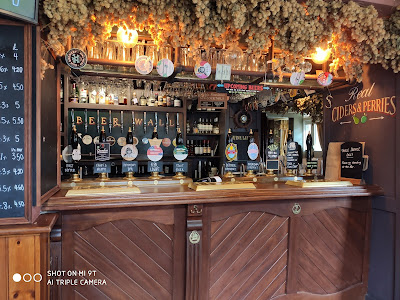Th e news that the government’s scientific advisors are
considering the re-imposition of restrictions on pubs and restaurants, as some
sort of a trade-off between the full re-opening of schools in England, has
taken many commentators by surprise. The story, which featured in both the
Guardian and the Telegraph, will send shockwaves through a hospitality sector
already stricken by over three months of enforced closure, and comes at a time
when the licensed and restaurant trades are slowly getting back on their feet.
e news that the government’s scientific advisors are
considering the re-imposition of restrictions on pubs and restaurants, as some
sort of a trade-off between the full re-opening of schools in England, has
taken many commentators by surprise. The story, which featured in both the
Guardian and the Telegraph, will send shockwaves through a hospitality sector
already stricken by over three months of enforced closure, and comes at a time
when the licensed and restaurant trades are slowly getting back on their feet.
Unfortunately, it is yet another example of the media-induced, mass-hysteria surrounding Coronavirus and demonstrates how our hard-won freedoms and liberties are being eroded by the increasingly powerful “Nanny state” in the guise of Public Health England.
Professor Graham Medley, a member of the Scientific Advisory Group for Emergencies (SAGE), has suggested that because of recent increases in Coronavirus infections, it might come down to prioritising which areas of public life we should keep open and which should be closed. Medley claimed that the re-opening of schools might come down to a trade-off involving the closure of another sector and then went on to ask, “Do we think pubs are more important than schools?”
Well apart from telling this self-appointed “expert” to go forth and multiply, I know what my answer to this question would be, and I imagine there are tens of thousands out there who would agree with me. Unfortunately, Prime Minister Johnson appears to be backing his SAGE committee, stating, “Getting pupils back into the classroom was a national priority, while other freedoms were ‘conditional’.”
Now I’m not sure I heard that right, but these are dangerous words for the leader of a supposedly free and democratic country to be uttering. They smack of dictatorship, wrapped up in the guise of “Nanny knows best,” and bring with them shades of 1984 and “Big Brother.I’m also concerned over the increasingly emotional arguments being used to justify these curbs on our liberties, and the effect the continuing closures of certain sectors is having on our already fragile and damaged economy.
To argue that the education of the “cheeldren” should take
preference over other key sectors of the economy, is the exactly the same spurious
argument that the life of a police officer is somehow worth more
than that of an ordinary member of the
public. These example illustrate how, regardless of the facts, emotion is often used as a foil against cold, level-headed logic.
The subject of masks has also sparked fierce debate, here in
the UK, with the chairman of the Metropolitan Police Federation openly criticising
the government over what is seen increasingly as "making up policy on the hoof." The
PM’s expectation that already over-stretched police forces should enforce the mandatory wearing of masks in retail
outlets, is one area where the government has failed to provide clarity, as is
the late night announcement of the new restrictions affecting certain parts of the Yorkshire
and the North West. Local businesses, and also the police were given very little time to prepare for these changes, or to decide how they should be monitored and enforced.
This comes on top of the requirement for all travellers returning from Spain, to self-isolate for 14 days; yet another policy that was brought in at extremely short notice.
Many people I have spoken to are also becoming increasingly angry over the government’s muddle-headed approach, and this latest piece of nonsense over pubs, from “Meddling Medley,” will only serve to inflame what is an already tense situation.










